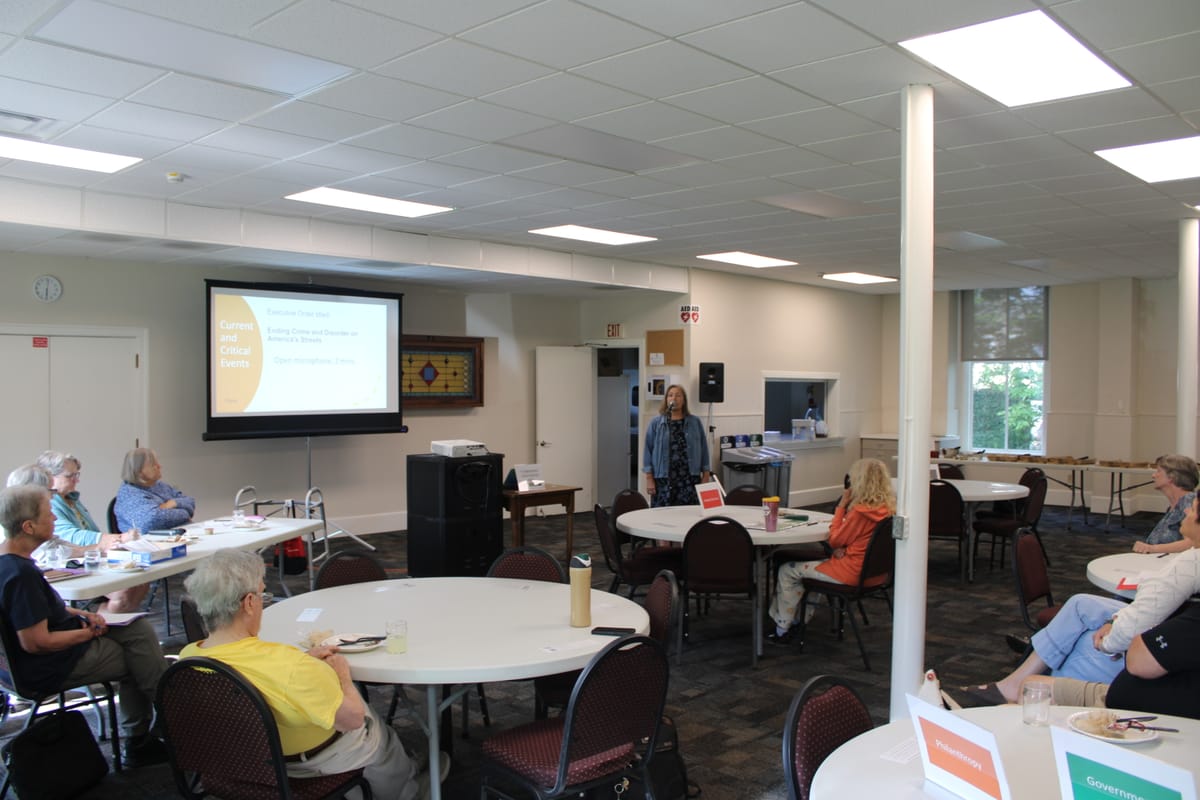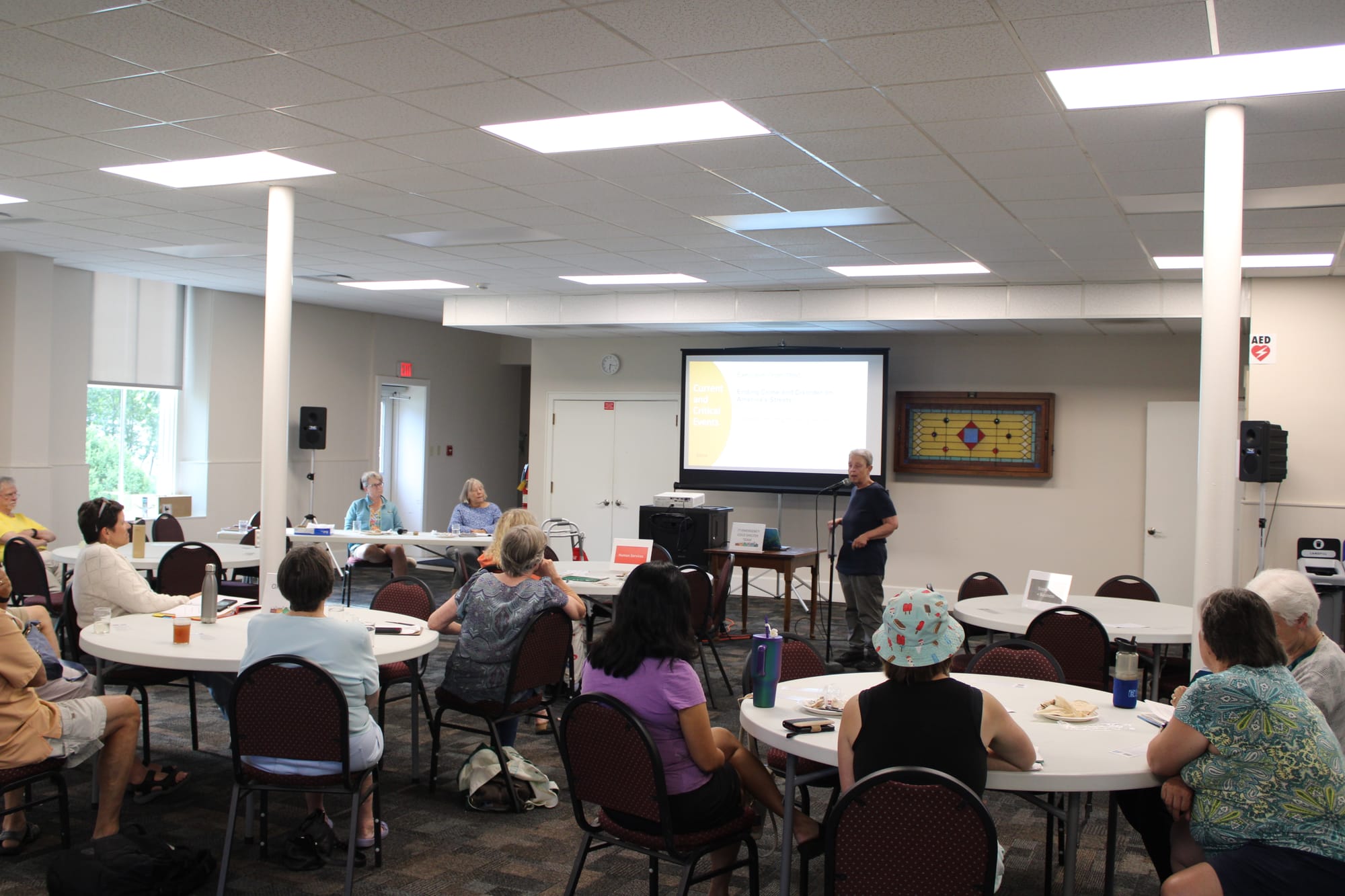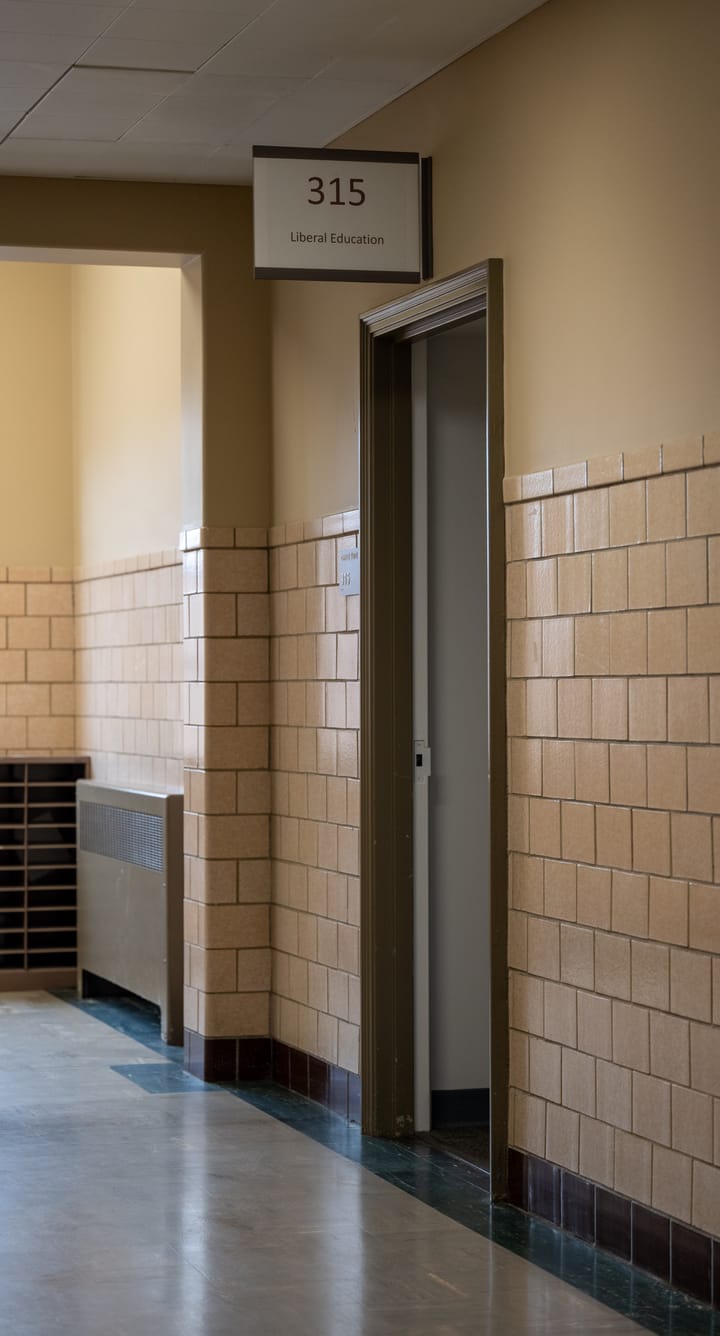Oxford Area Solutions for Housing holds meeting to discuss recent executive order about homelessness
Despite having a meeting plan, the Oxford Area Solutions for Housing pivoted and held a public discussion regarding a recent executive order from the Trump administration that makes it easier to commit homeless people to institutions against their will.

The Oxford Area Solutions for Housing (OASH) responded to a recent executive order from the Trump administration that says people living off the streets should be committed to mental health institutions or drug treatment centers at its meeting on July 28.
OASH had scheduled a meeting for July 28 with a separate agenda but pivoted to a public discussion regarding the executive order when it was announced on July 24.
The order states that the number of people living off the streets reached a record high last year.
“Shifting homeless individuals into long-term institutional settings for humane treatment through the appropriate use of civil commitment will restore public order,” the order reads.
It goes on to say that the Attorney General and the Secretary of Health and Human Services should work to “seek, in appropriate cases, the reversal of Federal or State judicial precedents and the termination of consent decrees that impede the United States’ policy of encouraging civil commitment of individuals with mental illness who pose risks to themselves or the public or are living on the streets and cannot care for themselves in appropriate facilities for appropriate periods of time.”
The executive order would make it easier at the state and federal levels to commit homeless individuals to institutions against their will. Diane Ruther-Vierling, a co-president of OASH, said this order criminalizes homelessness rather than tackling the social and systemic issues at play.
“Instead of seeing homelessness as a societal problem,” Ruther-Vierling said, “they’re trying to view it as a drug addiction [and] mental health issue and possibly force all those people into treatment. When they did that years ago, it didn’t work: You can’t force someone to get well, it has to be a choice.”
Ruther-Vierling said homelessness in Oxford has escalated over the past few years. A point in time count from January revealed an increase by nearly 25% in Oxford’s homeless population from 2024-25. The United States as a whole saw a similar trend with an increase of 12.1% from 2023-24, according to the National Alliance to End Homelessness.
The recent executive order states that previous administrations have spent billions of dollars to fight the issue without addressing the root causes. It also calls for mandatory mental health and addiction treatment to protect public safety.
During the meeting, attendants were encouraged to voice their opinions and concerns about the executive order and what it means for Oxford. Multiple people asked OASH for information on the order and questioned Mayor William Snavely, who attended the meeting, about Oxford’s response.
For Ann Fuehrer, the treasurer of OASH, these opportunities, such as the “Good Trouble Lives On” protest, allow residents to speak out and show that they aren’t content with these nationwide changes.
Fuehrer said the values in OASH don’t align with the provisions of the executive order and emphasized the importance of supporting people experiencing homelessness rather than punishing them.
“We are not partisan in terms of political party,” Fuehrer said. “We are really clear that cruelty and inhumanity and punishment [are wrong], as opposed to kindness and love and support and services and prevention and getting people the resources that they need.”

Many people brought up several issues they found with this executive order. Among others, Ruther-Vierling was worried about where the government would find the necessary facilities for the treatment plan laid out in the order.
“There aren’t enough treatment facilities,” Ruther-Vierling said. “Even if you wanted to put all these people in treatment, there’s no place to put them. People have to go on long waiting lists now to get into treatment.”
Attendants were also outspoken about the criminalization of homelessness. Many pointed out that forcing homeless people to go to treatment centers doesn’t address the systemic aspects or broader social concerns with the problem.
Fuehrer, who previously served as the executive director of the Talawanda Oxford Pantry and Social Services, said that historically, institutionalizing people hasn’t worked.
“They saw that state mental hospitals institutionalizing, warehousing people just wasn’t working to deal with really basic human needs that people had,” Fuehrer said. “Those are people who, without appropriate supports, would have been out on the streets if they weren’t there, but they needed a different model of what to do.”
The provisions in the executive order require local nonprofit organizations to provide health-related information about the people they are helping in order to receive federal funding and share that information with law enforcement authorities.
For Ruther-Vierling and Fuehrer, moving money from these organizations and funding facilities and treatment centers will cause more harm than good.
“What we have to do is provide the money that would go to these large institutions [and] put it back into the community,” Fuehrer said. “We have psychologists and social workers in the school systems. We integrate them into the existing institutions and strengthen natural-helping systems and nonprofits in the community. If that had happened … then we wouldn’t have people who didn’t have a community to identify with and didn’t have support.”
At the end of the meeting, groups met at separate tables to discuss OASH’s various programs. One such program is Oxford Reads Together, where participants read and discuss one of three books related to homelessness and housing. The program launches on Sept. 7.
OASH will next meet on Aug. 18 at the Oxford Presbyterian Church Seminary Building.





